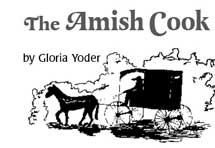A friend recently shared a story that involved her stepson’s girlfriend (I’ll call her Linda) and my daughter Danielle.
During practice for their band show, the Norwell Marching Knights were learning a new move. Linda dropped her clarinet and it “shattered into a million pieces.” Danielle offered Linda her clarinet until she could get a new one. Danielle wouldn’t need hers since she was doing color guard for summer band.
Linda explained she was scared to tell her parents about her immediate need for a replacement. Danielle “saved” her by delaying that need until summer’s end.
Yesterday would have been Danielle’s 38th birthday had she not died suddenly on December 19, 2003, of cardiac arrhythmia, “a heart fart” the Allen County Coroner explained to me a month later. His gentleness helped me understand how the Wednesday before her death she could be fine as we shopped, then ate at Fazoli’s, and planned for her to come to Ossian on Saturday to make Christmas cookies.
I learned of Danielle’s death through a phone call from my ex-husband I took in my classroom just minutes before the start of the last day of school before Christmas break 2003. I later learned because he had an unsettling feeling, he returned from work to the Fort Wayne apartment he and Danielle shared and found her dead in the bathroom.
There’s much more I could tell you about losing an only child, an adult child, 18 1/2 years old (Danielle was always big on those 1/2 years.); planning her funeral (honestly, I don’t remember much about that.); the funny things that happened (yes, there were some humorous moments); the roles family, friends, and faith played (all were instrumental.); and grief counseling and the grieving process (it’s ongoing). Maybe I’ll share some of that another time.
I want to take us back to the beginning of the article and to the importance of sharing memories — touching memories, funny memories — with those grieving the loss of a loved one. I delight hearing stories involving Danielle, even if I’ve heard them a time or two or more. Stories like the trip to Cedar Point in the pouring rain and her cousin’s need for a bathroom or a hog roast where she was traumatized by the sight of the pig resting upside down in the tub before roasting or the “save” she performed in that opening paragraph. While I may tear up a bit as I’m laughing and smiling and remembering, I am touched by the fact that someone else remembers her fondly. So don’t hesitate to share good memories with those missing loved ones.
In his publication “The Morning After: Grieving Someone We Love,” John Pavlovitz — a former youth pastor and author of a popular blog — combines several essays he wrote after his father died. An essay titled “What Not to Say to Grieving People” struck me because I know many of us are at a loss for words when we encounter the grieving whether at the viewing or funeral or days/weeks/months/years later. I’m certain I’ve said some of these things and some were said to me after Danielle died. (Frankly, I don’t remember who said what at the time. I was broken.) But if I can help you refrain from saying something that might not be received as intended and, instead, speak comforting words, I’d like to do that.
Pavlovitz explains that often the things others said with the purest intention of alleviating some of the devastation he felt when his father died actually “poked the already massive wound in my heart, and made it worse.”
“They’re in a better place.” We the grieving really don’t want to imagine our loved one in a beautiful place somewhere feeling blissful without us. Maybe I’ll want to have a conversation sometime about the afterlife and Danielle, but maybe I should be the one to bring that up.
“God needed another angel.” I prefer to believe that while God is omnipotent, the Almighty did not engineer my seemingly bottomless grief by selfishly taking my daughter with so much life ahead of her.
“Everything happens for a reason.” In addition to facing such tremendous loss, now we are challenged to figure out the whys. Determining the reason God, or fate, or the universe took Danielle is beyond my fathoming on a good day. Did I do something awful to deserve such “punishment?”
“I know how you feel.” While we all probably know grief, no two people will experience it exactly the same. Even others who have lost a child will not endure the same suffering. Danielle was my only child; she left no siblings behind to be consoled. I would be no mother-of-the-bride, no grandma. Her father and I were divorced; I had no spouse with whom to share the pain. Friends and family were a comfort, but even my mom — who experienced the death of her firstborn, my brother, from cancer in his early 50s — did not know exactly what I felt.
“Call me if you need anything.” When our world has been thrown off its axis and nothing seems normal, we can barely tie our shoes let alone call someone with requests. Even when I made it through the deepest of my grief, I did not make that call. But friends did, my mom and sisters did. So make that contact, even weeks or months later, just to check in or share a memory.
Pavlovitz reminds us there are few words that will be helpful when trying to soothe the pain of one grieving the loss of someone dear. He does offer a couple suggestions: “I’m sorry you have to walk this road” and “I love you.”
Here’s the thing: I don’t think anyone intentionally utters words that will further hurt those grieving, but I also don’t think in the moment we give much thought to the implication and impact of our words. Pavolvitz has provided some wisdom. I think he would say it’s also OK to share touching stories. You can even save them for later. But do share them.
Let’s talk.
annaspalding1956@gmail.com
———
Editor’s Note: This is one of a series of articles written by a group of retired and current teachers — LaNae Abnet, Ken Ballinger, Billy Kreigh, Kathy Schwartz, Anna Spalding. Their intent is to spur discussions at the dinner table and elsewhere. You may also voice your thoughts and reactions via The News-Banner’s letters to editor.



